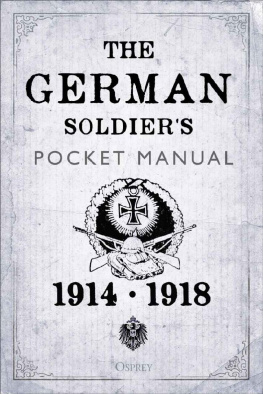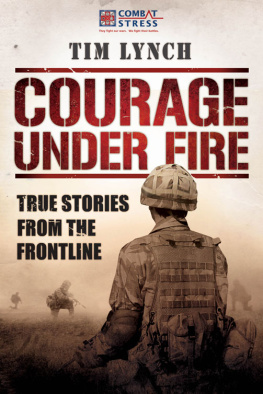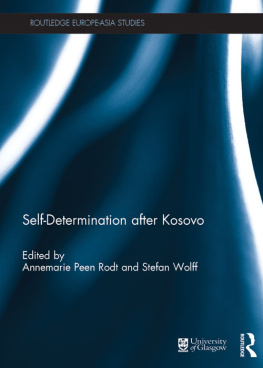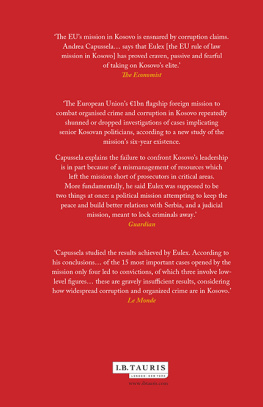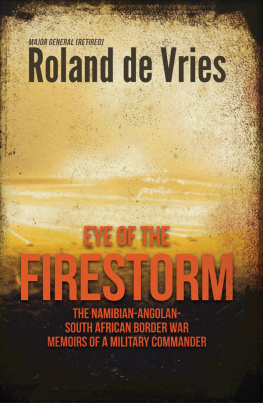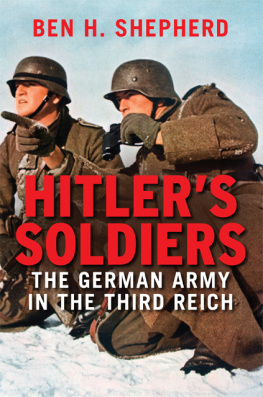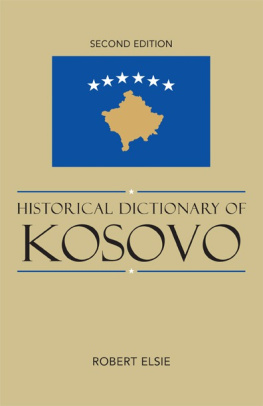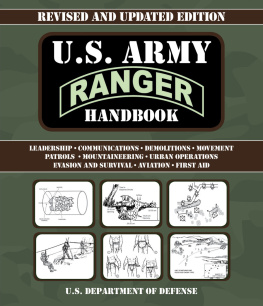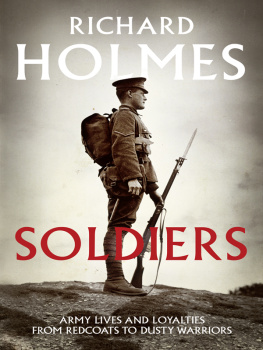Roland Bartetzko
The Smell
of War
Lessons from the Battlefield
The Smell of War 2018 Roland Bartetzko
All rights reserved. No portion of this book may be reproduced in any form without permission from the publisher, except as permitted by copyright law. For permissions contact:
Cover by designhouse Prishtina
Ebook production: mach-mir-ein-ebook.de
Font: Charis by SIL International, this font is available under the Open Font License
Contents
Orientierungsmarken
Acknowledgements
I would like to express my gratitude to the many people who helped me with this book.
I would like to thank my wife Valbona Mustafa for helping me in the process of editing.
A special thanks to Fiolla Tmava for proofreading and suggestions.
A special thanks to Trim Ibrahimi for formatting and for the cover design and to Faton Kryeziu for his permission to use his painting Burned Land for the cover.
Last and not least: Thanks to the soldiers who shared their stories with me so that I could enjoy the privilege to have them in this book.
Part One
Bosnia
A Beginning
SARAJEVO, Bosnia and Herzegovina, April 19 In an explosion of fighting that appears to have further diminished the prospects of peace in Bosnia, two armies that have been linked in a nominal alliance against the Serbian nationalist forces have opened what amounts to a full-scale war
- The New York Times, April 20, 1993 Bitter Croat-Muslim battles in Mostar, sandwiched between cease-fire agreements, will only complicate the already tangled attempts to patch together a peace in the Balkans, Western diplomats in Croatia say.
- The New York Times, May 11, 1993
W hen I took the bus to the warzone, I was the only passenger. At the time, the city of Mostar was the most dangerous place in Europe and nobody wanted to go there. The bus was old and tattered, seats were missing and there were bullet holes all over the window glasses.
The badly maintained road was winding along the gorges of the Neretva River. When we approached the city, I saw clouds of black smoke rising into the air, long before I noticed any buildings.
The first landmark of Mostar when you approach the city from the South, is the cemetery. When we passed by, I pressed my face against the window to have a better view. I could see that many of the graves were fresh.
When the bus entered the city center, I saw a large graffiti on a wall writing:
WELCOME TO HELL!
MOSTAR, EAST CHICAGO '93
I stepped out of the bus and stood on the pavement not knowing where to go. There were very few people walking on the sidewalk, but suddenly, shooting noise was heard coming from an area a block away and everyone started running.
I stood there alone, not knowing what to do.
A Croatian soldier was waving at me and making an angry face. I told him in German that I couldnt understand a word he said and he shouted in a heavily accented German: Komm mit, du Trottel (Follow me, you idiot!).
As I was running after him feeling a little bit scared and insecure, I couldnt help but notice his strange haircut:
He obviously had been shaving his long black hair when the enemys small arms fire had surprised him. Now, the left half of his head was cleanly shaven, while the other side was still full of black and dirty hair.
While we were running, he told me that his name was Dragan. I told him my name and why I had come to Bosnia.
We entered a big building, climbed the stairs to the tenth floor (no electrical power) and went into a small apartment. Dragan told me in sign language to lay down on an old couch and have a nap. He would bring me later to his unit.
Of course, I couldnt sleep. It was too hot, too noisy and a million thoughts were crossing my mind. I had come all the way from Germany to volunteer for a foreign military and now that my decision had been made and was quasi-irreversible, I was thinking about my situation:
The Croatian Army wasnt the first army I signed up for. I was only seventeen years old when I joined the German Army. I needed the permission of my parents to do that.
The reason I joined was that I wanted to become a soldier. No more, no less. I wasnt even interested in joining some Special Forces unit. All I desired was to become an infantryman. I joined the German Fallschirmjger or paratroopers as they were considered to be good infantrymen.
However, the German army was a peacetime army and the chances to see real combat were slim. If it was war you wanted to experience, then the German army wasnt the right place. To call myself a soldier, I thought, I had to fight. Otherwise, I might as well have joined a paintball club.
When the war in Bosnia started, nothing could hold me back from going. I joined the Croats, but I could have easily joined the Bosnian Army, it didnt matter to me. Not the Serbs, though; werent they the bad guys?
Dragan had left the apartment to go somewhere, but now he was back and told me to go schnell, schnell (fast) with him. We went back to the main road where I had stepped from the bus earlier, and to my surprise, there were three big buses lined up on the other side of the road.
These buses were relatively new, not like the one that I had taken before. We entered the first one and it was full of people and ready to go. The driver wore a military uniform and told us to stand near him during the drive.
The bus left the city the same way I had entered it before, we passed the church and then the cemetery, but then we took a left turn and after about two kilometers, we arrived at the military airport of the city.
The Heliodrom like the Croats called it, was out of use and had seen better days. In the fading sunlight, I recognized the wrecks of some old MIG fighter aircraft that stood left and forgotten on the runway.
We entered the main administration building and I was let into a small office where a group of older soldiers was sitting around a table. They looked like officers to me and it turned out that they were. The most senior of them addressed me. He asked me a couple of quick questions: Who are you, why are you here, any military experience? I answered him and that was it. They all seemed satisfied with my answers and each officer shook my hand and congratulated me on my new job. I was now the newest soldier of the Croatian Defense Council.
We went to a small storage depot which was full of uniforms and weapons. I received camouflaged combat fatigues, a pair of US-style army boots, a leather belt, and most importantly, a Russian made AK-47 Kalashnikov assault rifle.
Dragan, who was at my side during the whole time, tried to sneak away with a new uniform for himself, but the guy in charge of the logistics made it clear to him what he thought about shoplifters. Dragan flashed him a smile and while he gave back what wasnt his, I noticed that half his teeth were missing.
I was asked if I knew how to handle the AK-47 and I lied yes. I thought it couldnt be that difficult and I also wanted to give a good first impression. The commander told me that I would get the rest of my equipment at the front line and wished me good luck.
On the Frontline
A n old Bordeaux red Renault 18 picked us up and we were driven across the airfield. Then the driver turned off the headlights and hit the gas. We speeded over a very narrow wooden bridge (Snipers, I was told), turned a sharp left and then stopped in front of a row of bungalows.
Dragan and I got out of the car while the driver immediately turned around and headed back.
In a garden in front of one of the bungalows was a group of soldiers. They were my new squad Dragan told me. A small and chubby guy with a perfectly clean-shaven head and dark bushy eyebrows introduced me to the others. Slaven was his name. He spoke in passable English and after I had shaken everyones hand, he gave me a quick update on the tactical situation. While he was talking, I could hear the sound of automatic weapons fire. I couldnt say, however, how far away it was, or from which directions the shots were coming and going.


